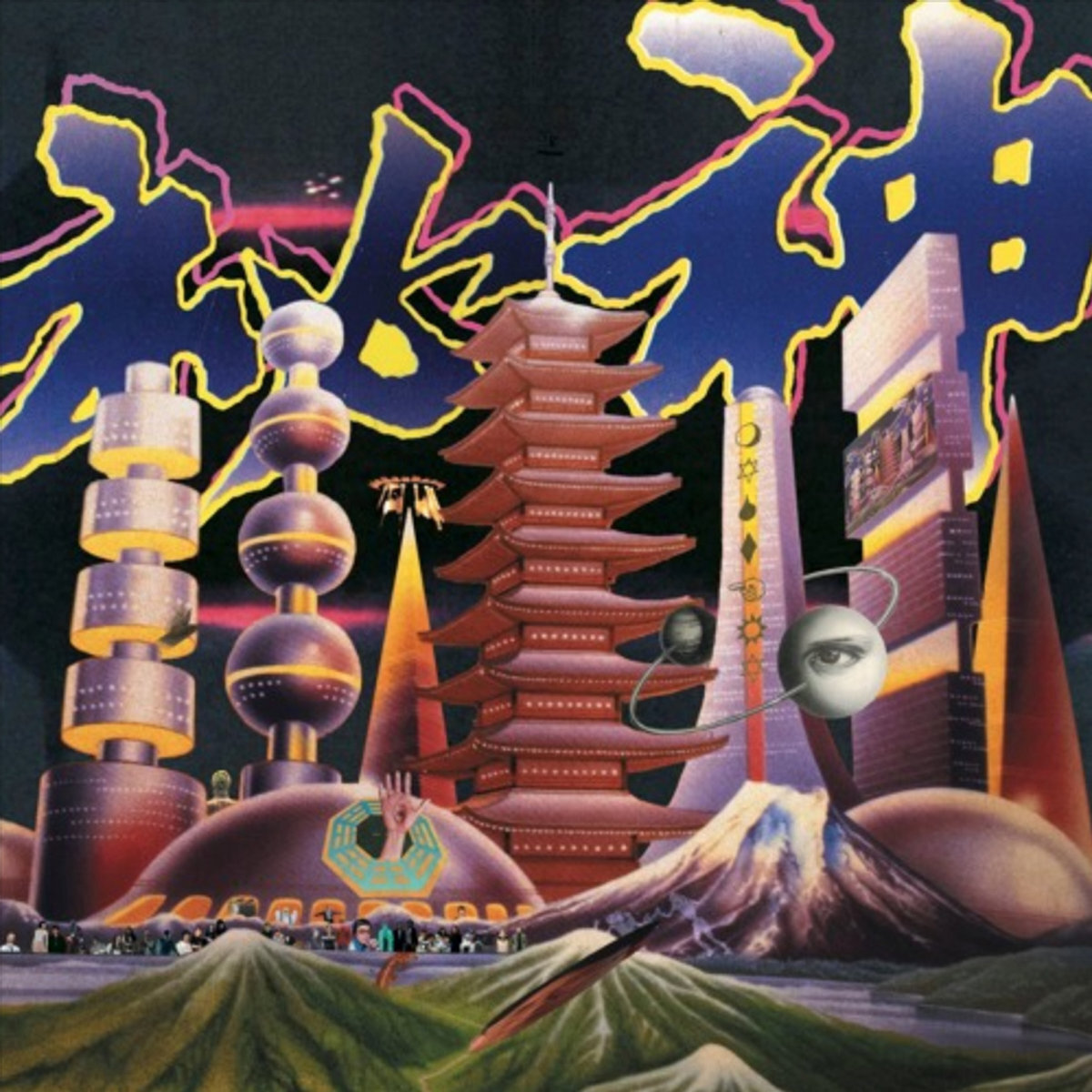Mong Tong 夢東 are a sample-based psychedelic trio operating in Taiwan. They are an instrumental act whose sound is broad, compelling, and tricky to pin down. In its production, their new LP Mystery 秘神 churns post-punk, dub and synthpop elements into its charming whole, suspended with a precarious effectiveness between the genres. It uses modern techniques to explore elements of Taiwanese folklore, blending horror with dark humour, futurism with tradition.
Post-punk can largely be found in lower registers; in the album’s rolling bass grooves and the ultra-precision of its drums. Its minimalistic composition and arrangement bears the standard, too—most audibly in the Baltic ‘717’. The genre and its practitioners obviously made an impression. At this point, artists seem to be paying homage to this sound almost compulsively, but in the right hands (as here) it’s still effective.
These lower registers also fill their vast spaces with a syrup-thick mugginess; this is where the dub comes in. Drums are vast and reverberant—not so much giving Mystery 秘神 foundation as they ballast it into deep, dark spaces. ‘Ancient Mars’ recalls Kenji Kawai’s Ghost in the Shell soundtrack, mimicking the composer’s employment of an insistent heartbeat of Indian percussion.
The compositional simplicity and use of traditional instruments helps bolster Mystery 秘神 as what Mong Tong 夢東 describe as “a psychedelic journey to the east.” The trio wear Taiwanese culture with pride and, for an electronic act, are remarkably unswerving from their traditional approach. The most notable exceptions are the album’s heavy use of sampling and synths. Sometimes samples are downright eccentric. Mystery 秘神 at one point uses sounds from Space Cadet 3D, which many of a certain age will remember as that pinball game that came pre-installed on machines running Windows XP. Such goofiness secures the album’s success; Mong Tong 夢東 are more aware than most that tradition and fun aren’t mutually exclusive.
Mystery 秘神 is available for purchase and streaming here.
Words: Andrew O’Keefe



